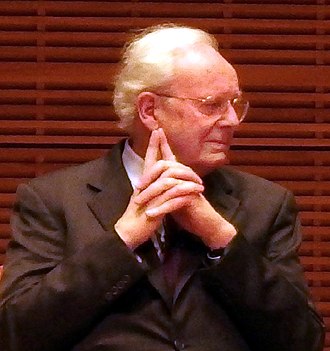- Date Of Birth: August 30, 1933
- Date Of Death: March 9, 2021
- Spouse: Sandra Gould
- Occupation: Professor of History
- City: Ithaca
- State: New York
Walter Fredrick LaFeber (August 30, 1933 – March 9, 2021) was an American academic who served as the Andrew H. and James S. Tisch Distinguished University Professor in the Department of History at Cornell University. Previous to that he served as the Marie Underhill Noll Professor of History and a Stephen H. Weiss Presidential Fellow at Cornell.
LaFeber was one of the United States’ most distinguished scholars of the history of U.S. foreign policy, and a leading member of the “Wisconsin School” of American diplomatic history. He was known for providing widely read revisionist histories of the Cold War with views like William Appleman Williams but more subtle; the label “moderate revisionist” has been applied to him.
LaFeber’s teaching abilities led to his longstanding undergraduate “History of American Foreign Relations” class at Cornell gaining a reputation as one of the university’s best and most popular courses. A number of his students went on to prominent positions in the U.S. government and academia. In 2006 LaFeber gave a farewell lecture before nearly 3,000 colleagues and former students at the Beacon Theatre in New York City.
LaFeber retired in 2006 after 46 years on the Cornell faculty. His farewell lecture on April 25, 2006, billed as “A Special Evening With Cornell’s Walter LaFeber: A Half-Century of Friends, Foreign Policy, and Great Losers” was given to a nearly 3,000-person, capacity gathering of former students, Cornell alumni, and colleagues at the Beacon Theatre in New York City. (The event had been moved from the originally scheduled American Museum of Natural History venue due to overwhelming demand for tickets.) The lecture, which was centered in part around the origins and implications of Wilsonianism, was in his style delivered without notes and once again met with a standing ovation. Hunter Rawlings, the president of Cornell, noted that the event evinced an “intellectual passion, a group catharsis of the first order,” not by any manifestation of popular culture or the information age, but by nothing more than “a lecture on diplomatic history”.
In 2013, LaFeber was given an American Historical Association’s 2013 Award for Scholarly Distinction, a lifetime achievement award for what the association said was for being “one of the scholars who re-invented the study of American foreign relations in the 1960s: not only transforming many specific debates, but lastingly changing our sense of what this field could be. … An exceptionally visible and valuable public intellectual, Professor LaFeber has managed to reach broad audiences without sacrificing academic rigor.”
The influence of LaFeber was again a topic in 2016 at Zankel Hall in New York City, when he and several prominent students discussed the influence of Cornell on American diplomacy.
LaFeber died on March 9, 2021, at an assisted living facility in Ithaca, New York. He was 87.
Later that month, Cornell created the Walter F. LaFeber Professor seat, based on a gift from Andrew H. Tisch (who had audited LaFeber’s course as an undergraduate in 1970–71). Thomas B. Pepinsky was named the inaugural holder of the professorship. – Available under the Creative Commons Attribution-ShareAlike License from Wikipedia.
